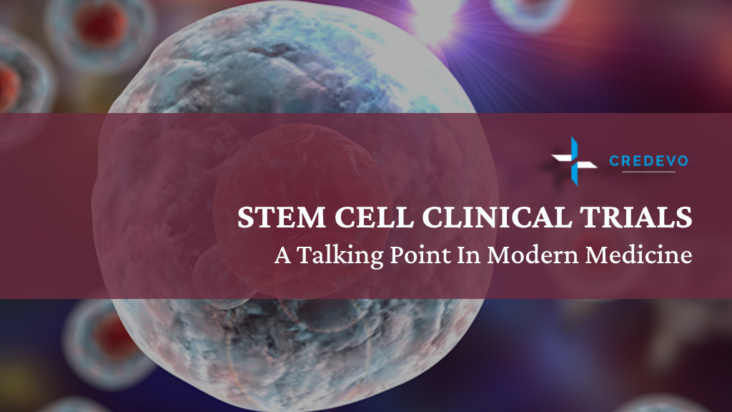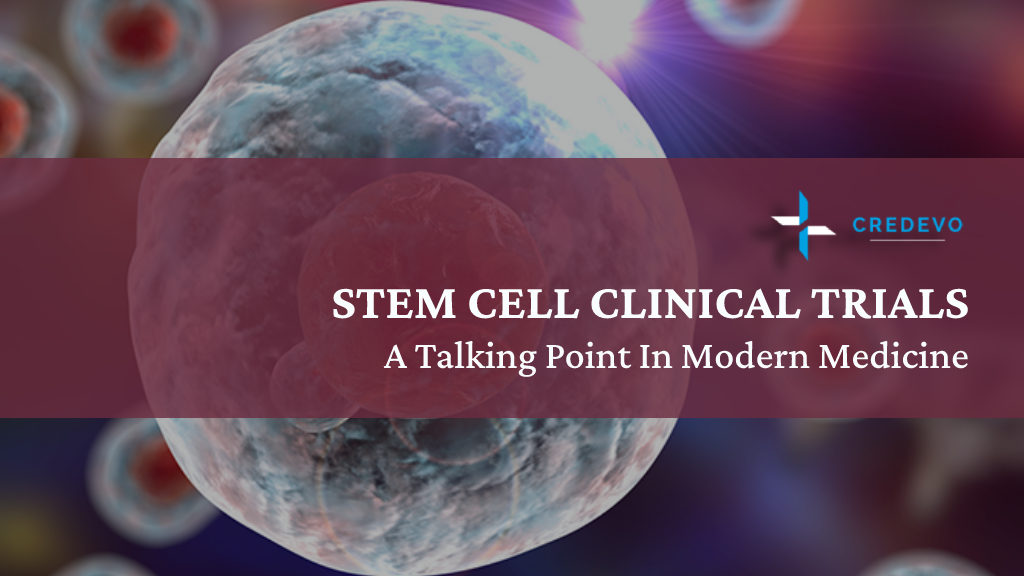Why Are Clinical Trials On Stem Cells A Talking Point In Modern Medicine?

In recent years, hundreds of clinical trial investigations were performed using stem cell to treat common and life-threatening conditions such as heart disease, Alzheimer’s and diabetes. But till now, the only stem cell-based treatment routinely reviewed and approved by the U.S. FDA is hematopoietic (or blood) stem cell transplantation.

The efficacy and safety of stem cells in patients is a point of contention in modern medicine. Scientists believe that stem cells could be helpful in different areas of health to find the cure for many severe illnesses and in medical research.
Since the efficacy of stem cells on patients is controversial, doctors and scientists have focused on clinical trials on stem cells before using them in the community. The studies and surveys on stem cell clinical trials contribute to a better understanding of human development and treating different medical conditions through modern stem cell technologies.
Now let’s first understand what stem cells are?
What are stem cells?
The human body produces stem cells throughout life. They can repeatedly divide to form new daughter stem cells and specialized cells in the human body. Stem cells can restore scarred human body cells. Therefore they express a guarantee for modern scientific remedies.
How do stem cells produce?
Stem cells repeatedly divide to form different cells.
- Embryonic stem cells– They can produce and differentiate stem cells.
- Adult stem cells – They have less ability to produce new stem cells.
- Perinatal stem cells – Stem cells in amniotic fluid and umbilical cord have the potential to change into special cells.
What are the benefits of stem cells?
- Understanding the improvement of a disorder.
- Regenerative medicine(once cells are affected due to any reason, stem cells produce new cells and replace the diseased cells.
- To test new drugs for protection and efficacy.
What is the importance of stem cells?
- The principal advantage of stem cells is their ability to remodel into various subtypes and their potential to repair damaged tissues. This ability of stem cells is helpful in modern medicine.
- Most untreatable diseases in the human body are due to the malfunction of the body tissues. Organ transplantation plays a considerable part in restoring malfunctioning tissues. Medical professionals experience a crucial difficulty during organ transplantation due to the risk of transplant rejection. According to the data, stem cells exhibit less rejection than organ transplantation. But the healing process is slower compared to transplanted organs.
- Adult stem cell therapies help to treat various blood disorders, such as leukaemia, lymphoma, and many other blood disorders.
- According to researchers, stem cells are present in most body tissues. Experiments proceed to extract those cells to use in modern medicine and to use in further investigations.
What is stem cell therapy?
In this procedure, using stem cells and the derivatives of stem cells stimulate the repair reaction of diseased or injured tissues.
- They collect stem cells in a laboratory and modify them into specialized body cells.
- The next step is injecting those specific cells into the diseased muscle.
- Transplanted specialized cells stimulate the repair reaction of the diseased muscle.
Classification of stem cell therapy
- Autologous stem mobile therapy
- Non-expanded autologous stem cell therapy
- Expanded autologous stem cell remedy
- Allogeneic stem cellular therapy
- Stem mobile drugs
- Expanded or non-expanded allogeneic
The significance of stem cells is that they’re used to treat many patients using the exact source of stem cells.
What is the success rate of stem cell clinical application?
According to the data, stem cell clinical applications have achieved more than a 46% success rate.
- There are sufficient records suggestive of a successfully done epidermal stem cell skin grafting for damaged skin due to burns or other injuries.
- Autologous stem cells have helped to deal with multiple sclerosis effectively. (A condition that affects the brain and spinal cord and results in impairments in the human body).
- Modern stem cell therapy has been used to treat heart failure. Doctors enhance the patient’s bone marrow to release stem cells into his bloodstream. Then accumulated stem cells infuse again into the patients heart.
- Hematopoietic stem cells have been used with a high success rate when treating leukemia. It suggests that hematopoietic stem cells create a more healthy immune system to fight against leukemic cells.
When can clinical trials on stem cells be carried out?
- It is mandatory to conduct a clinical trial since the integrity and characteristics of the experimenting drug must be preserved. Although they use exact stem sell drugs in different patients during the surveys, the reaction differs from one patient to another.
- In this case, the clinical trial aims to determine the effectiveness of a drug in a community. If it indicates that the repetition of the clinical trial improves the quality of the stem cell therapies, it is better to repeat the clinical trial.
- Characteristics of stem cells can differ among donors. Therefore, the conclusion of a one donor patient is not always related to groups of receiving patients.
- In that case, it is necessary to perform a clinical trial before conducting an allogenic transplant( A procedure in which the recipient receives the stem cells from a donor to restore the recipient’s stem cells )
When not to perform clinical trials on stem cells?
Clinical studies with stem cells intend to test the safety and effectiveness of the drug. Since they retrieve the stem cell from the patient, the risk of rejection is inconsequential. In non-expanded autologous stem cell therapy, stem cells are transmitted from one tissue to another within the same patient. The survey on the effectiveness of the treatment is the main consequence in a clinical study for non-expanded stem cell transplants instead of the safety of the stem cells.
One of the most important questions is if a clinical trial for non-expanded autologous stem cell transplantation in a country failed, does the test have to be repeated in another country? According to the researchers, repetitive beliefs and a clinical study in different countries are unnecessary.
However, some clinical studies are ethically controversial. Research into human embryonic stem cells is controversial because it is related to damaging human embryos.
Do we have to repeat clinical trials on stem cell therapy?
There is no evidence that stem cells are detrimental. Autologous stem cells are considered very safe. Below are some examples of successfully used autologous stem cell therapy with a 100% successful rate.
- Autologous stem cell therapy in critical limb ischemia
- Meta-analysis of autologous stem cell therapy in critical limb ischemia
- Treatment of patients with type 1 and type 2 diabetes mellitus using meta-analysis of autologous stem cells
- Autologous stem cell therapy for end-stage liver cirrhosis, osteoarthritis, and limbal stem cell.
Some countries apply to repeat clinical trials for new autologous stem cell treatments and imported authorized drugs. Although the drug is from the patients themselves, the integrity of the stem cell drug may differ between patients in the case of autologous stem cell therapy. It is mandatory to consider that the pharmacological effect and efficacy may vary in different patients. Therefore repeating clinical trials would be controversial.
Conclusion
The purpose of a clinical study is to evaluate the effectiveness of a new recommended therapy or a new drug. Since stem cell therapy differs from the formal explanation of a drug, we can repeat some tests if it brings a more advantageous outcome. In cases of autologous stem cell therapies, it is unnecessary to repeat the trial. There is no new information about autologous stem cell safety or efficacy from repeating clinical trials.
Do You Need Support In Stem Cell Clinical Trials?
Credevo offers expertise in developing and executing efficient strategies to make your trials cost-effective and complete in time. Provide the necessary details below to connect with us and explore our services.